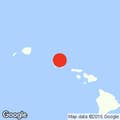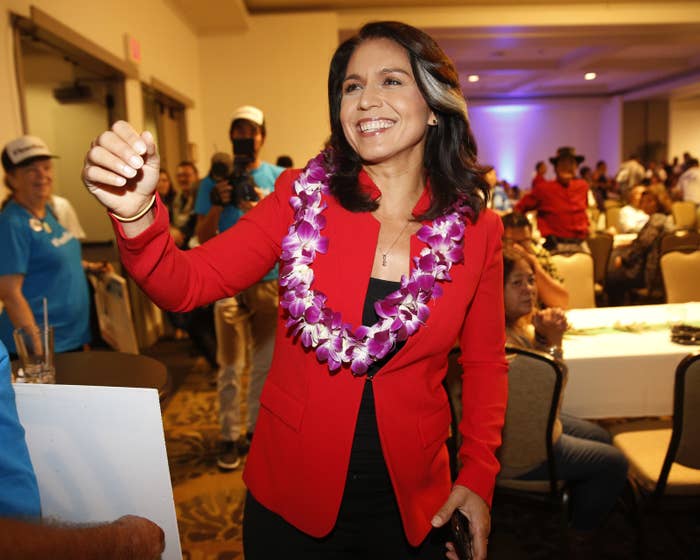
HONOLULU — Hawaii Rep. Tulsi Gabbard is a US citizen by birth. But as she announces her run for president, there are already signs that she’ll have to deal with the so-called birtherism politics that have frustrated presidential campaigns and others who, like Gabbard, were born in American Samoa — a US territory.
"I have decided to run and will make a formal announcement within the next week," she said on Friday.
Gabbard was born on American Samoa’s largest island, Tutuila, in 1981 and was raised there until she was 2, when her family moved to Hawaii.
Since becoming a representative in 2013 for Hawaii’s 2nd District and quickly building up a national following, Gabbard has been quietly surrounded by questions about whether being born in a US territory, where residents are not granted birthright citizenship, would impact her one day running for president.
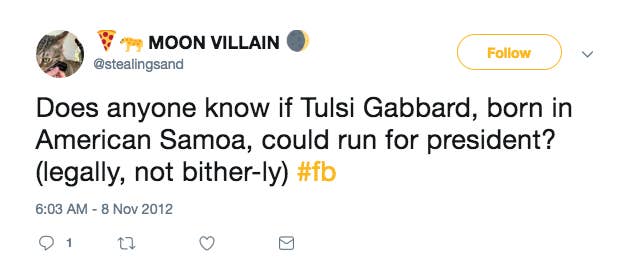
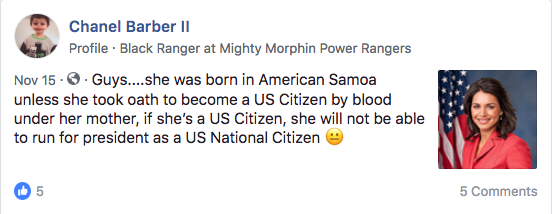
There are three constitutional requirements to be a US president: a person must be over the age of 35, have “been 14 years a resident within the United States,” and they must be a “natural-born citizen.”
A “natural-born citizen” is not explicitly defined by the Constitution, but it is generally thought to mean someone “who was a US citizen from birth, who never had to go through the naturalization process,” according to University of Hawaii political science professor Colin Moore, who spoke to BuzzFeed News.
Gabbard’s mother, Carol Gabbard, was born in Indiana, and her father, Hawaii state Sen. Mike Gabbard, was born in American Samoa to a father who was a US citizen, making Tulsi Gabbard a US citizen from birth under federal law.
Still, there has never been a ruling by the US Supreme Court to determine whether the term “natural-born citizen” includes people born outside the US, since a candidate known to have been born in a territory or abroad has never won the presidency. Moore called this “a gray area.”
The two most often cited comparisons to Gabbard are former Republican presidential nominee John McCain, who was born in the Panama Canal Zone while his father was stationed there with the US Navy, and Sen. Ted Cruz, who was born in Canada.
When McCain ran against Barack Obama in 2008, his eligibility was challenged in federal district court in New Hampshire, because the Panama Canal Zone was an unincorporated US territory when the candidate was born. Some legal experts reasoned McCain was not a natural-born citizen because he was born outside the US in 1936, a year before a law conferred citizenship on children born to US citizens in the Canal Zone. Others argued that it didn’t matter where he was born, because his parents were US citizens — one was even serving the country at the time.
In April 2008, the Senate passed a nonbinding resolution deeming McCain a natural-born citizen, but the resolution was not tested in court.
During the 2016 Republican primary, Donald Trump raised questions about whether Cruz was a natural-born citizen, and several legal challenges were brought in lower courts.
Cruz was born in Calgary, Alberta, in 1970 to a mother who was a US citizen born in Delaware and a father who was Cuban, although he is now a US citizen. Since Cruz was born to at least one US citizen, he is a citizen from birth.
Questions around Cruz’s eligibility were compared to the birther conspiracy theory that Trump helped enflame about Barack Obama, which falsely suggested that Obama was born outside the US and therefore was not a natural-born US citizen.
If Gabbard becomes a major presidential candidate, the pattern shows her birthplace will “absolutely” become a political issue for her, said Moore.
In Gabbard’s case, the debate is rooted in the fact that most people born in American Samoa would be disqualified from being president of the United States, since the US does not grant birthright citizenship to those born in the territory — instead they are given the unique status of “non-citizen US nationals.” American Samoans can become US citizens by moving to the states and going through an expedited version of the naturalization process that foreign-born nationals go through to gain US citizenship.
Gabbard’s office did not respond to multiple requests for comment for this story.
American Samoa has been an unincorporated US territory since 1900 and it is politically separate from the islands to the northwest that are part of the Independent State of Samoa. The territory is home to more than 55,000 residents, with more than 180,000 Samoans living in the states.
Because American Samoans are not granted birthright citizenship, they can’t vote for president, serve on a jury, or run for office, and they’re not eligible for certain federal jobs. This is not true for the other US territories — people born in Puerto Rico, the US Virgin Islands, Guam, or the Commonwealth of the Northern Mariana Islands are all citizens at birth.
Some American Samoans want this changed, and a group living in Utah and represented by the nonprofit Equally American has filed a federal lawsuit asking for birthright citizenship. The case was heard in Utah’s federal district court in November and a ruling is pending.
Charles Ala’ilima, who is co-counsel on the case, told BuzzFeed News that American Samoans should be granted birthright citizenship under the 14th Amendment.
“[The] constitution says, ‘We do not recognize different levels of people,’” said Ala’ilima. “Yet here is this territory where you have given a status based upon their place of birth and their race, which is just different than the status given to every other state or territory.”
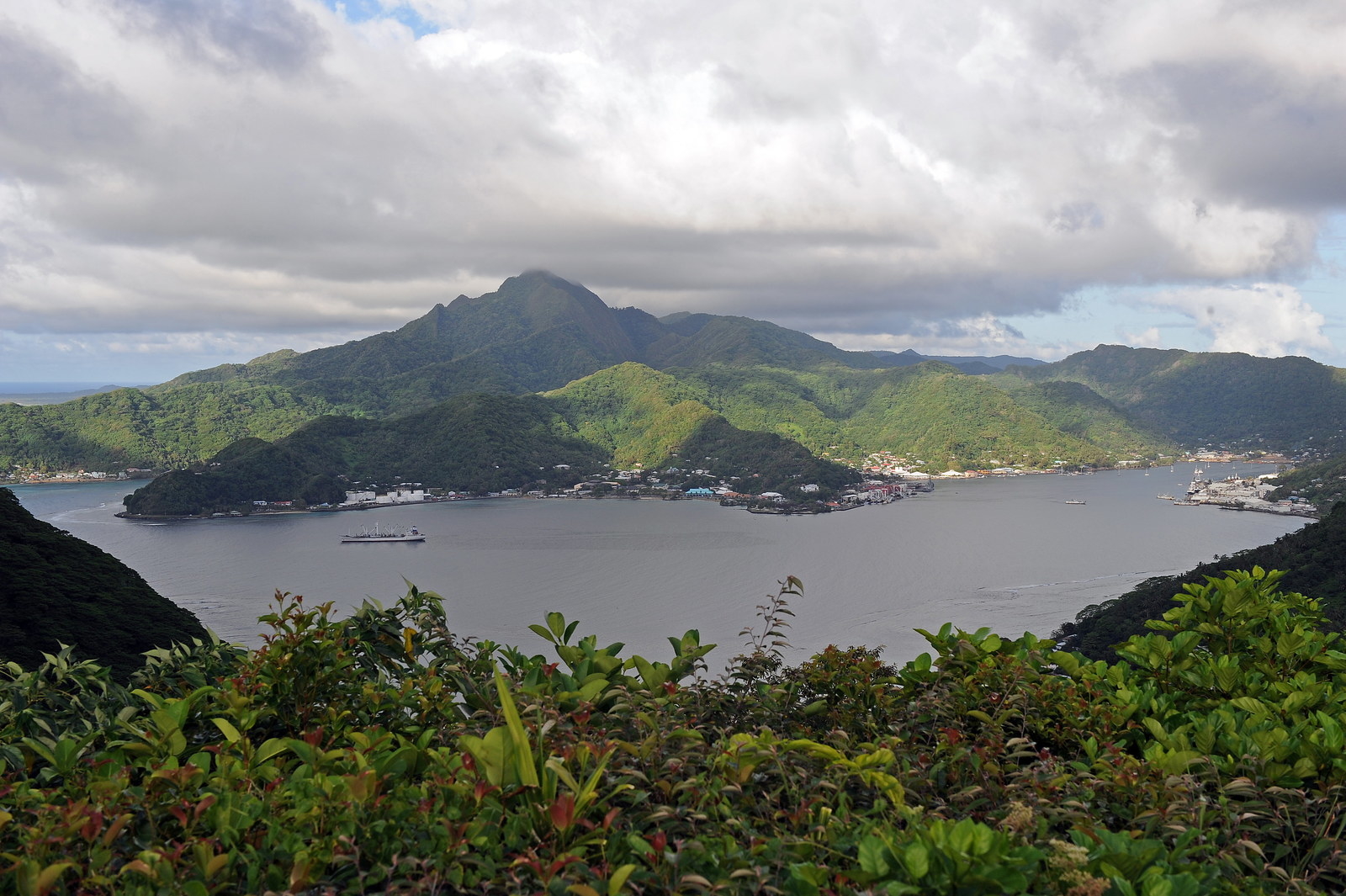
Still, others don’t want US citizenship for American Samoans, saying they think it will lead the territory onto a slippery slope that will end in the loss of land and indigenous culture, comparing it to what has happened to Native Hawaiians in the state of Hawaii.
Line-Noue Memea Kruse, author of The Pacific Insular Case of American Samoa, told BuzzFeed News that she does not think American Samoans should be given birthright citizenship, because she is concerned the federal government will decide that the US territory’s indigenous political system is unconstitutional.
In American Samoa, Kruse said, there are two unique aspects to governance: the Fa’amatai system and communal lands. The former is a chiefly political system, which governs communal lands that are shared by everyone. Acquiring land in American Samoa is also unique, requiring people to be at least 50% Samoan.
With citizenship, Kruse said, comes the possibility the federal government will decide that the territory’s current way of life is unconstitutional, because it is “an indigenous nobility system” and race exclusory.
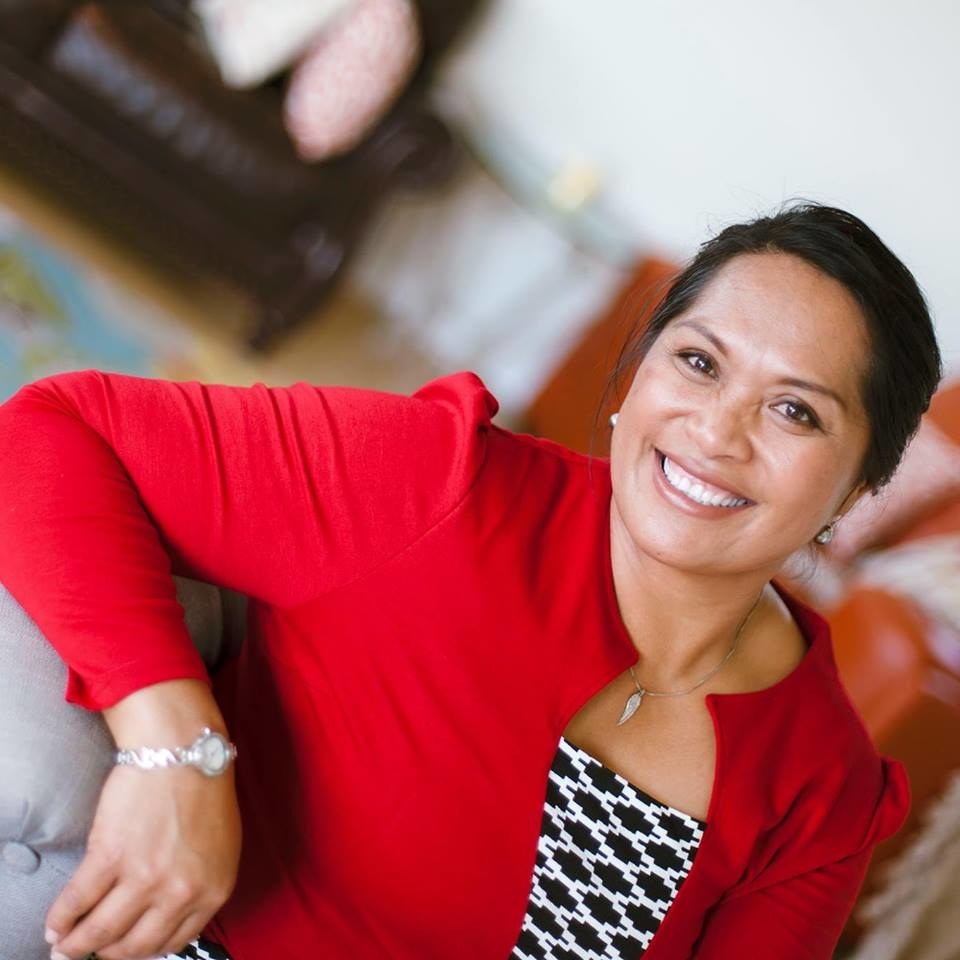
The citizenship question facing American Samoans in US politics has presented a challenge for candidates in the past. Last year, Republican Sailau Timoteo was disqualified from running in a Hawaii statehouse race after it was discovered she was born in American Samoa. Unlike Gabbard, Timoteo was born a US national, and not a US citizen.
“I was born in American Samoa — just like Tulsi Gabbard,” the 43-year-old former candidate said to BuzzFeed News. “My parents brought me to Hawaii when I was three months old.”
Timoteo grew up on Oahu and registered to vote in Hawaii at 18, but she was told by the Hawaii attorney general’s office just a week before the election that she was not allowed to run because she was not a US citizen.
“It may sound crazy,” said Timoteo about her mistake. “I knew US national was different, but I didn’t understand what was the full difference.”
Timoteo said she started the naturalization process in September 2017, but didn’t know when she answered “yes” to having voted it would be considered fraud. US Citizenship and Immigration Services requires a three-month residency period in the states for non-citizen US nationals from American Samoa, as opposed to the usual five-year minimum. More than a year later, Timoteo has still not received citizenship, but said she is hopeful an investigation will prove that she unknowingly violated the law.
“We are American Samoa,” she said, emphasizing the word American. “So I challenged them on that — that would make one believe that I’m a US citizen.”
US Immigration Services said the agency “cannot discuss individual cases due to privacy concerns” when asked about Timoteo’s voter violations and application status.
Timoteo said she still has family in American Samoa and despite her troubles does not think residents in the territory should be granted birthright citizenship.
“I think it’s OK the way it is and the way it is set up, because it preserves the traditional things back at home,” said Timoteo.
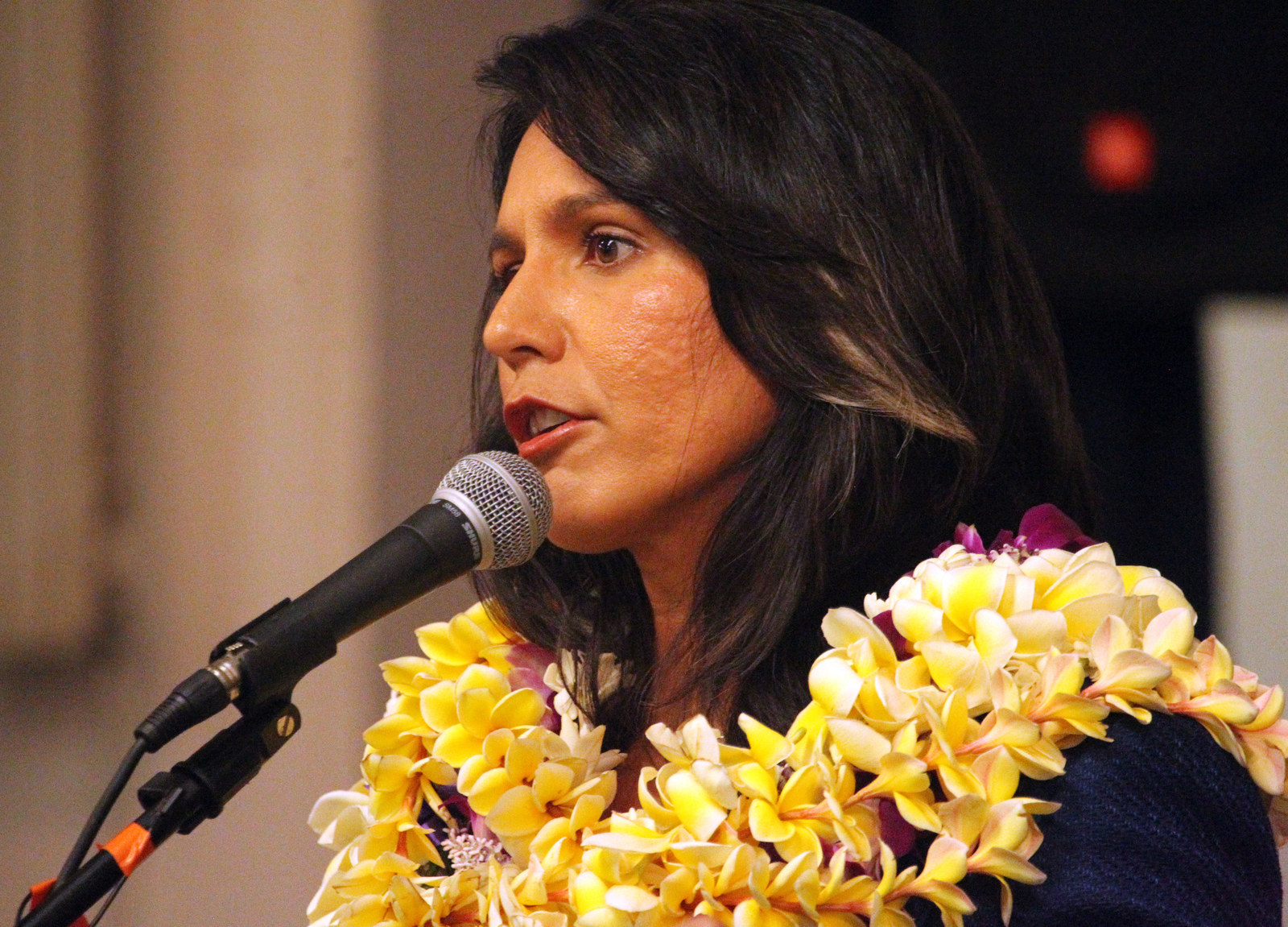
Now 37 years old, Gabbard was the youngest person elected to the Hawaii State Legislature in 2002 at the age of 21, and she would be the youngest person ever elected president of the United States should she run for the White House.
Gabbard stands out in a crowded field of potential candidates because of her military background — she served in the Middle East with the Hawaii Army National Guard — and for being the first Hindu elected to the US Congress.
In 2017, she traveled to Syria on a controversial “fact-finding mission,” where she met with President Bashar al-Assad, who is accused of committing war crimes. Despite backlash from many in her party, Gabbard has been picking up supporters, who say that they like that she speaks her mind and brings a unique perspective.
“I think she has a particular viewpoint on the types of people that make up the United States of America, because there are different kinds of people outside of the lower 48 that also contribute to America’s success,” Kruse said.
But Moore, the political science professor, cautioned a White House run will prompt questions about Gabbard’s eligibility.
“Her being born in American Samoa will certainly come up,” he said. “Will it become a political issue if she becomes a major candidate? Absolutely.”

